|
The Film

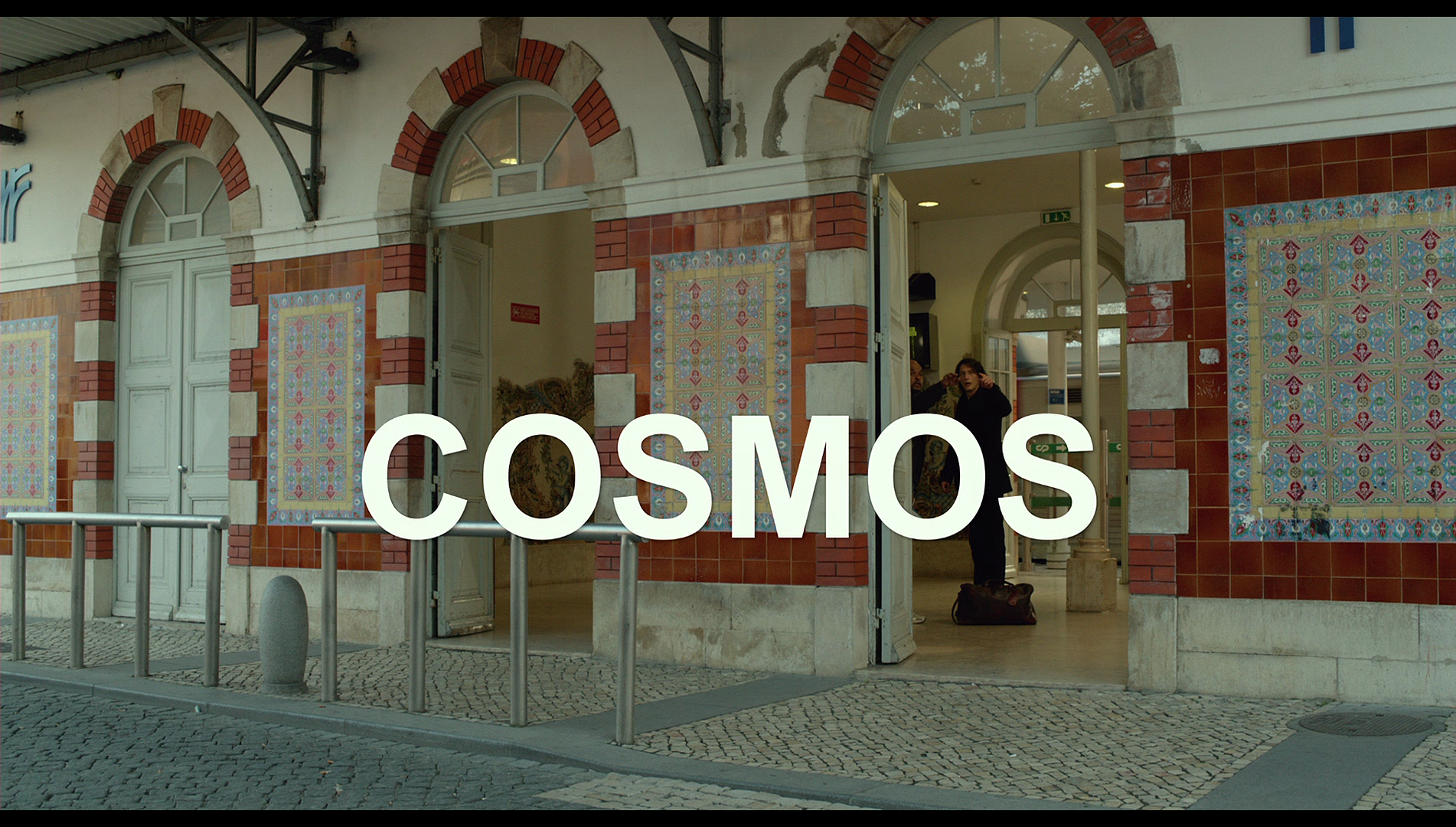 Cosmos (Andrzej Zulawski, 2015) Cosmos (Andrzej Zulawski, 2015)
The final film of the noted Polish film director Andrzej Zulawski, Cosmos (2015) was released just prior to Zulawski’s death in February of 2016. The film is based on the 1965 novel by Witold Gombrowicz. Like Gombrowicz's novel, Zulawski’s film is predicated on absurdist techniques and contains within it an exploration of social class and difference, and an examination of youth and identity.
Following the novel’s narrative quite closely, but updating the events depicted within it to the present day, Cosmos focuses on Witold (Jonathan Genet), a third year law student and aspiring author who faces trouble from his family over his degree results. Together with Fuchs (Johan Libéreau), Witold takes a room at a family-owned guest house in the countryside. Witold, a nervous young fellow, becomes obsessed with various portents that he sees upon his arrival: a sparrow hanged from a branch by a length of twine; a slug that has been placed in a pot of cream; the deformed mouth of Catherette (Clémentine Pons), the housekeeper of the guest house.
Witold also becomes enmeshed in the relationships of the owners of the guest house, Léon (Jean-François Balmer) and his wife (Sabine Azéma), and Léon’s daughter Lena (Victória Guerra) and her husband Lucien (Andy Gillet). Witold becomes fascinated sexually with Lena to the point of obsession. When Lena’s cat is found strangled, tensions within this small community amplify. As the narrative progresses, the portents accumulate, and even Fuchs begins to see these ominous symbols buried deep hidden within everyday life (what Witold calls ‘the unnoticed signs in the natural order of things’).
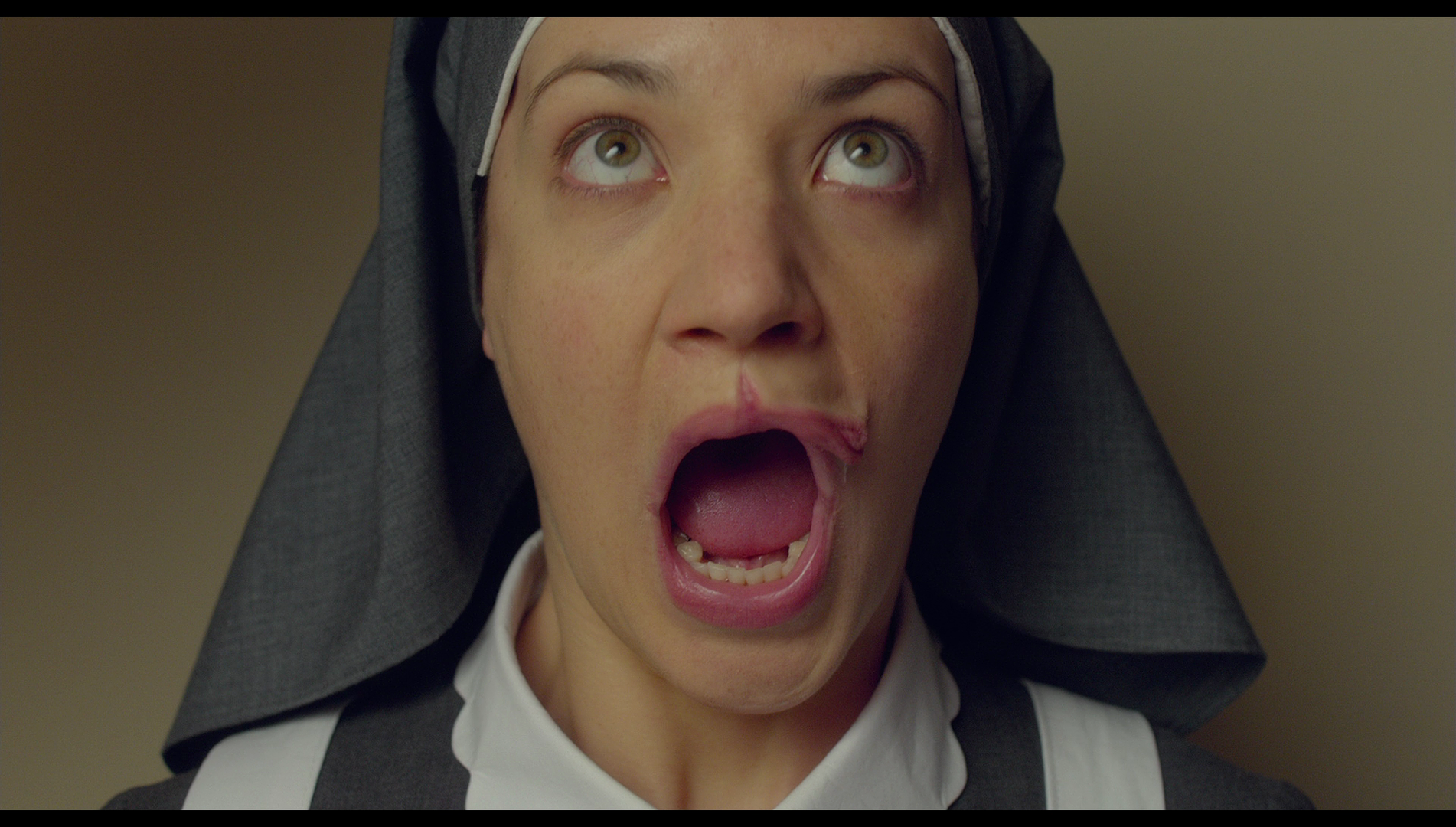 The film begins with Witold leaving the train station. His behaviour is erratic and jittery, suggesting a deep-rooted sense of anxiety. He walks along a path through a wooded area, complaining to himself about how he’s petrified of the forest. He sees a sparrow hanging from a branch; around the neck of the sparrow is a piece of twine. He takes this as an omen, a portent of things to come. As the film progresses, it becomes rapidly clear how obsessed Witold is with these signs. His obsession is infectious; he passes it on to Fuchs. However, Witold seems cognisant of how absurd these obsessions with finding symbols of impending doom in the most mundane of circumstances is: ‘The savage power of a stupid thought’, he says at one point, the insight in this phrase wrapped up in comedy as Witold mimics the voice of Donald Duck. At the dinner table, Witold talks about ‘the dis-order [sic] of things’: the hanged sparrow, Catherette’s lip, ‘the cat that sleeps on Catherette’s chest’. These symbols all point to what Witold calls ‘[t]he irrational organisation of the world’. However, as Fuchs says, ‘Nothing can be explained, at least properly’. The film begins with Witold leaving the train station. His behaviour is erratic and jittery, suggesting a deep-rooted sense of anxiety. He walks along a path through a wooded area, complaining to himself about how he’s petrified of the forest. He sees a sparrow hanging from a branch; around the neck of the sparrow is a piece of twine. He takes this as an omen, a portent of things to come. As the film progresses, it becomes rapidly clear how obsessed Witold is with these signs. His obsession is infectious; he passes it on to Fuchs. However, Witold seems cognisant of how absurd these obsessions with finding symbols of impending doom in the most mundane of circumstances is: ‘The savage power of a stupid thought’, he says at one point, the insight in this phrase wrapped up in comedy as Witold mimics the voice of Donald Duck. At the dinner table, Witold talks about ‘the dis-order [sic] of things’: the hanged sparrow, Catherette’s lip, ‘the cat that sleeps on Catherette’s chest’. These symbols all point to what Witold calls ‘[t]he irrational organisation of the world’. However, as Fuchs says, ‘Nothing can be explained, at least properly’.
In trying to make sense of these disconnected visual signifiers – in his attempt to construct to place the symbols he encounters within a framework which will enable him to construct a cohesive narrative - Witold’s paranoid obsession may be compared with cinema itself. (The source novel uses Witold’s predicament as a metafictional device, causing the reader to reflect on how narrative within literature is built up from disconnected events and scenarios.) In the film, Witold is an aspiring novelist, spending his free time writing a novel entitled ‘The Daunted’. Witold’s novel is a mystery, and when Lena’s cat is killed the paradigms of the mystery novel begin to intrude on Witold’s world: he gathers the various inhabitants of the guest house in a room and interrogates them in the manner of a character such as Hercule Poirot. ‘Someone is just screwing with us’, Fuchs observes at one point as the signs accumulate; to this, Witold responds, ‘What if this [the things he and Fuchs are experiencing in the guest house] was just a novel?’
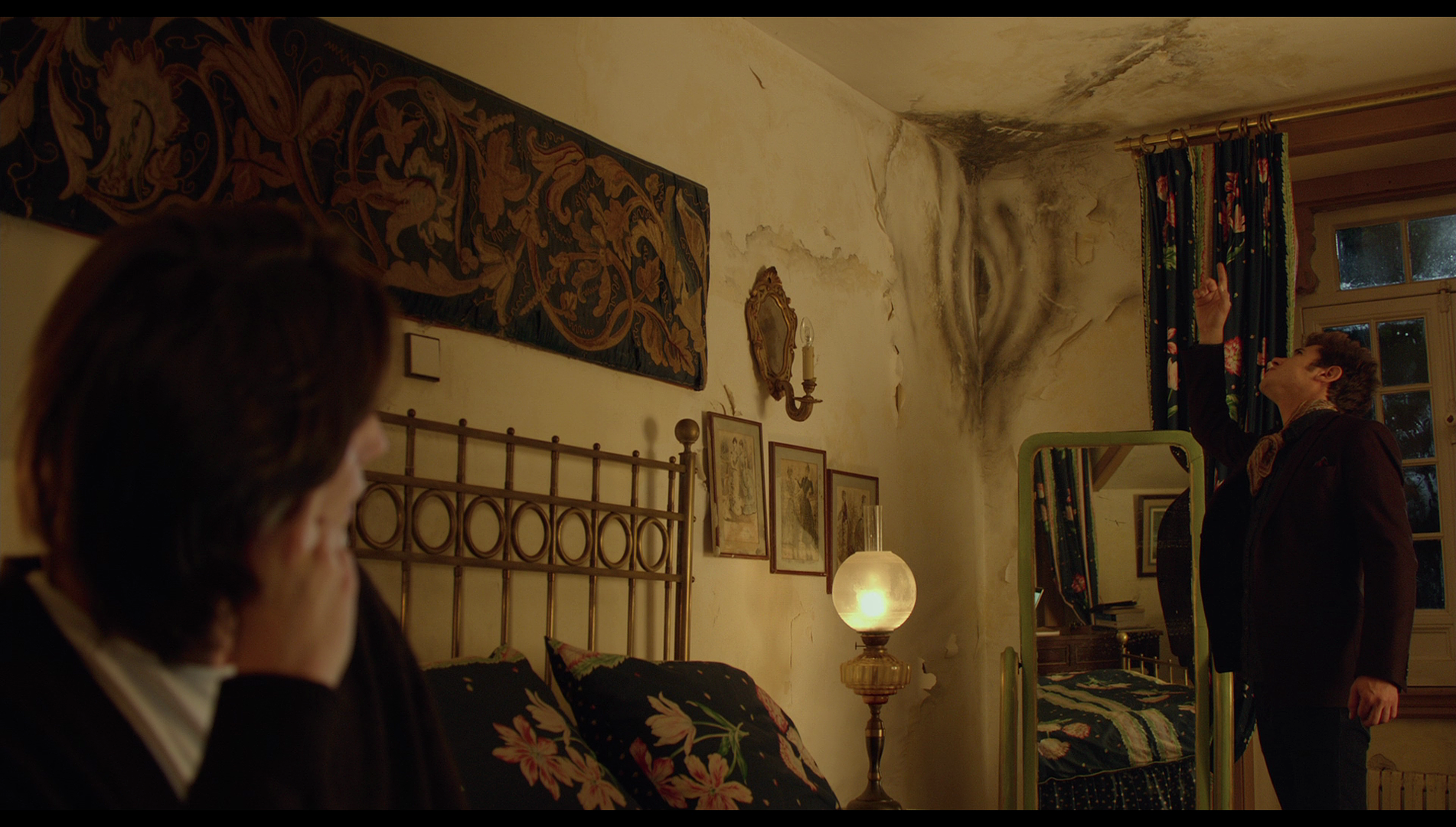 In keeping with the book, the content of the dialogue is often utterly phatic or, sometimes, entirely nonsensical; it’s the rhythms and patterns that this dialogue makes which is important, the repetition of phrases and topics of discussion. Witold and Fuchs talk about culture: the writings of Sartre and Stendhal; the films of Carl Dreyer and Pasolini. Sometimes, the dialogue throws up gnomic statements that hint at profundity. Seeing the desktop wallpaper on Witold’s laptop, an image of an attractive young woman, Fuchs comments, ‘How pretty’. ‘Tolstoy wrote that our greatest mistake is to confuse the pretty with the good’, Witold responds. ‘Times are modern, aren’t they?’, Fuchs says. Witold’s statement ironically encapsulates his later attitudes towards Lena and Catherette: Witold takes Catherette’s facial deformity as another portent, whereas he becomes obsessed sexually with Lena. However, Lena proves to be unstable and potentially malicious, like a femme fatale in a classic film noir, whereas Catherette is tormented and downtrodden. Much later in the film, Fuchs kisses the deformity on Catherette’s lip and comments to Witold, in reference to Lena and Catherette respectively, ‘Vice and virtue’. In keeping with the book, the content of the dialogue is often utterly phatic or, sometimes, entirely nonsensical; it’s the rhythms and patterns that this dialogue makes which is important, the repetition of phrases and topics of discussion. Witold and Fuchs talk about culture: the writings of Sartre and Stendhal; the films of Carl Dreyer and Pasolini. Sometimes, the dialogue throws up gnomic statements that hint at profundity. Seeing the desktop wallpaper on Witold’s laptop, an image of an attractive young woman, Fuchs comments, ‘How pretty’. ‘Tolstoy wrote that our greatest mistake is to confuse the pretty with the good’, Witold responds. ‘Times are modern, aren’t they?’, Fuchs says. Witold’s statement ironically encapsulates his later attitudes towards Lena and Catherette: Witold takes Catherette’s facial deformity as another portent, whereas he becomes obsessed sexually with Lena. However, Lena proves to be unstable and potentially malicious, like a femme fatale in a classic film noir, whereas Catherette is tormented and downtrodden. Much later in the film, Fuchs kisses the deformity on Catherette’s lip and comments to Witold, in reference to Lena and Catherette respectively, ‘Vice and virtue’.
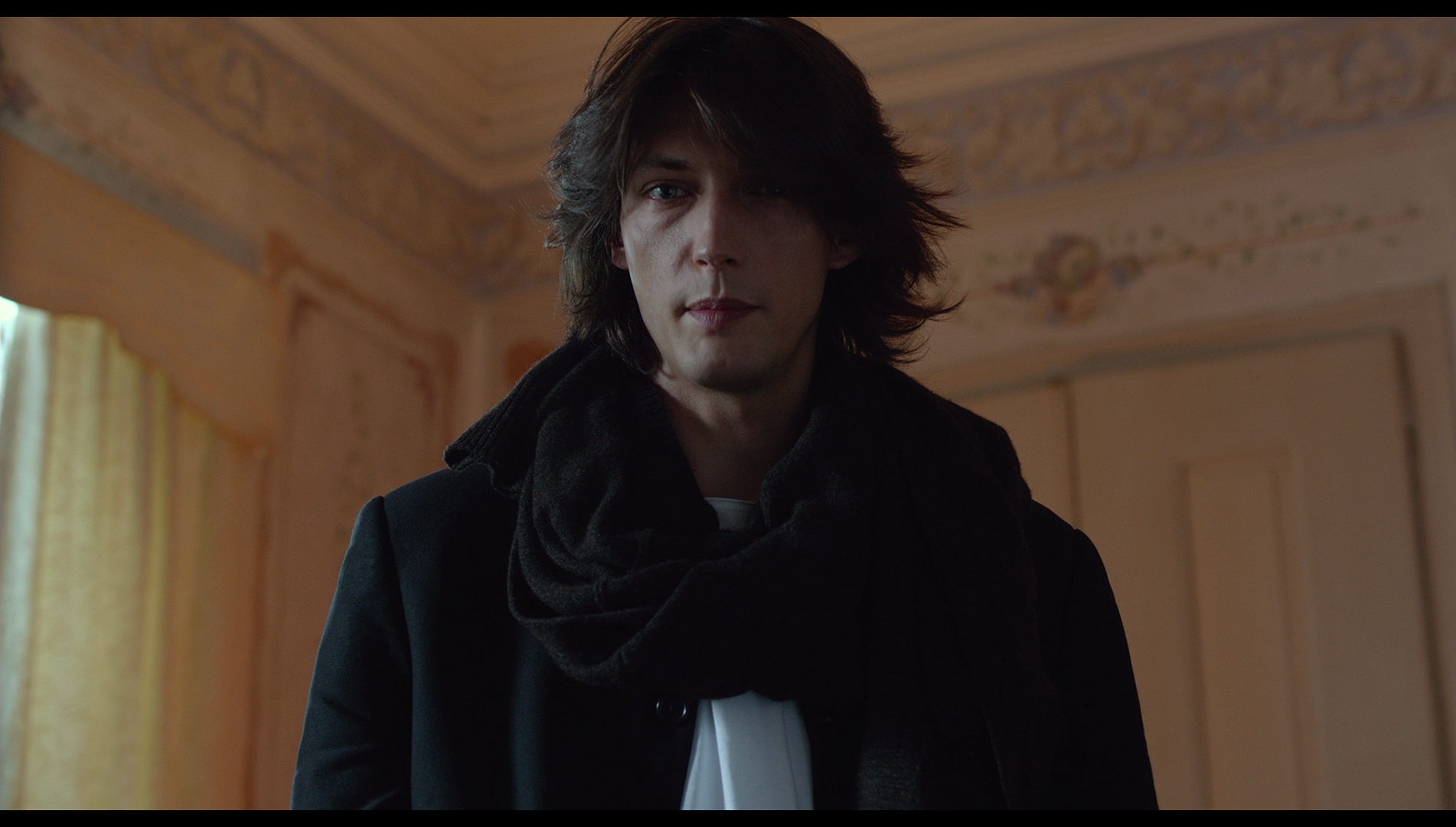 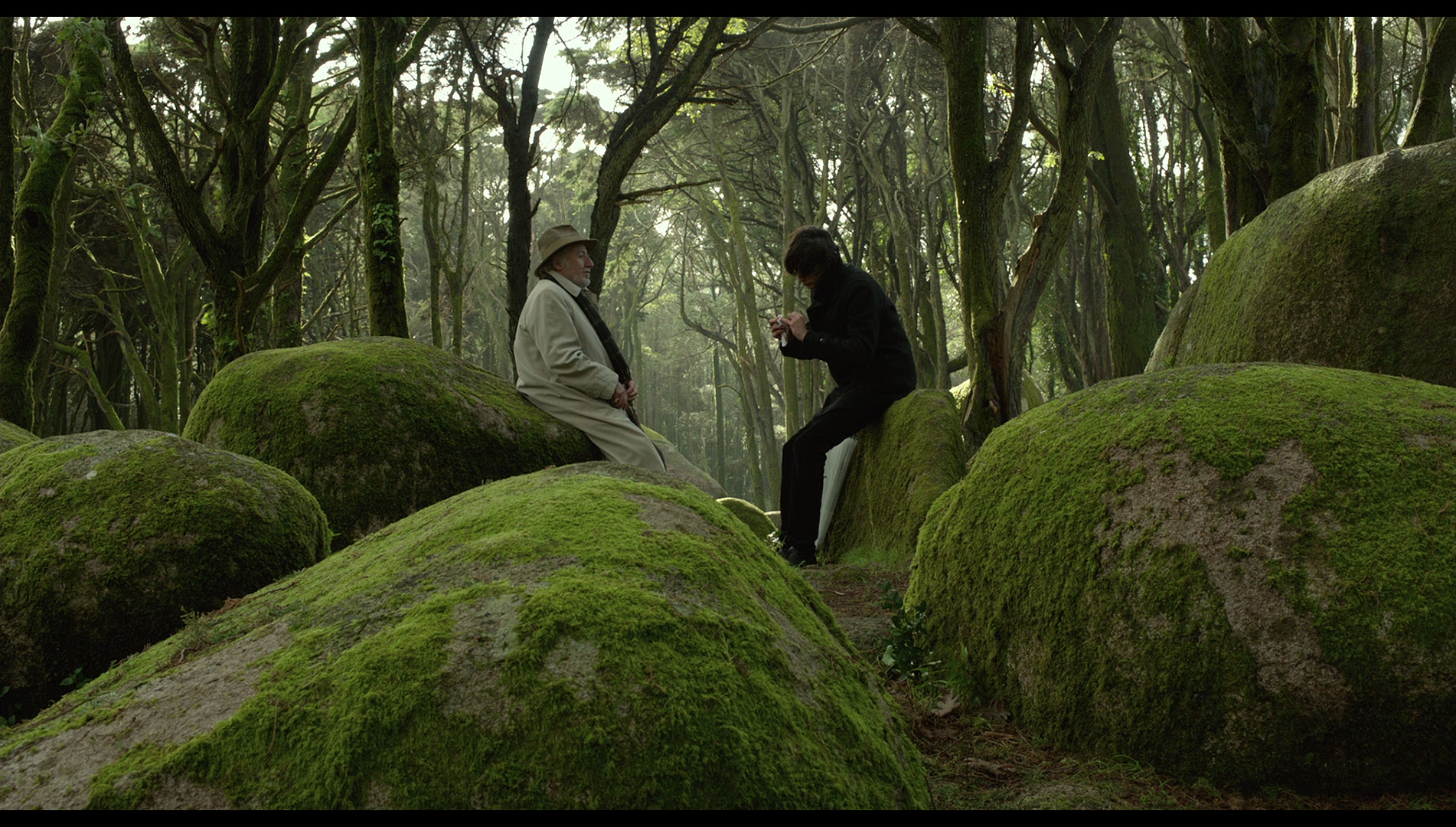 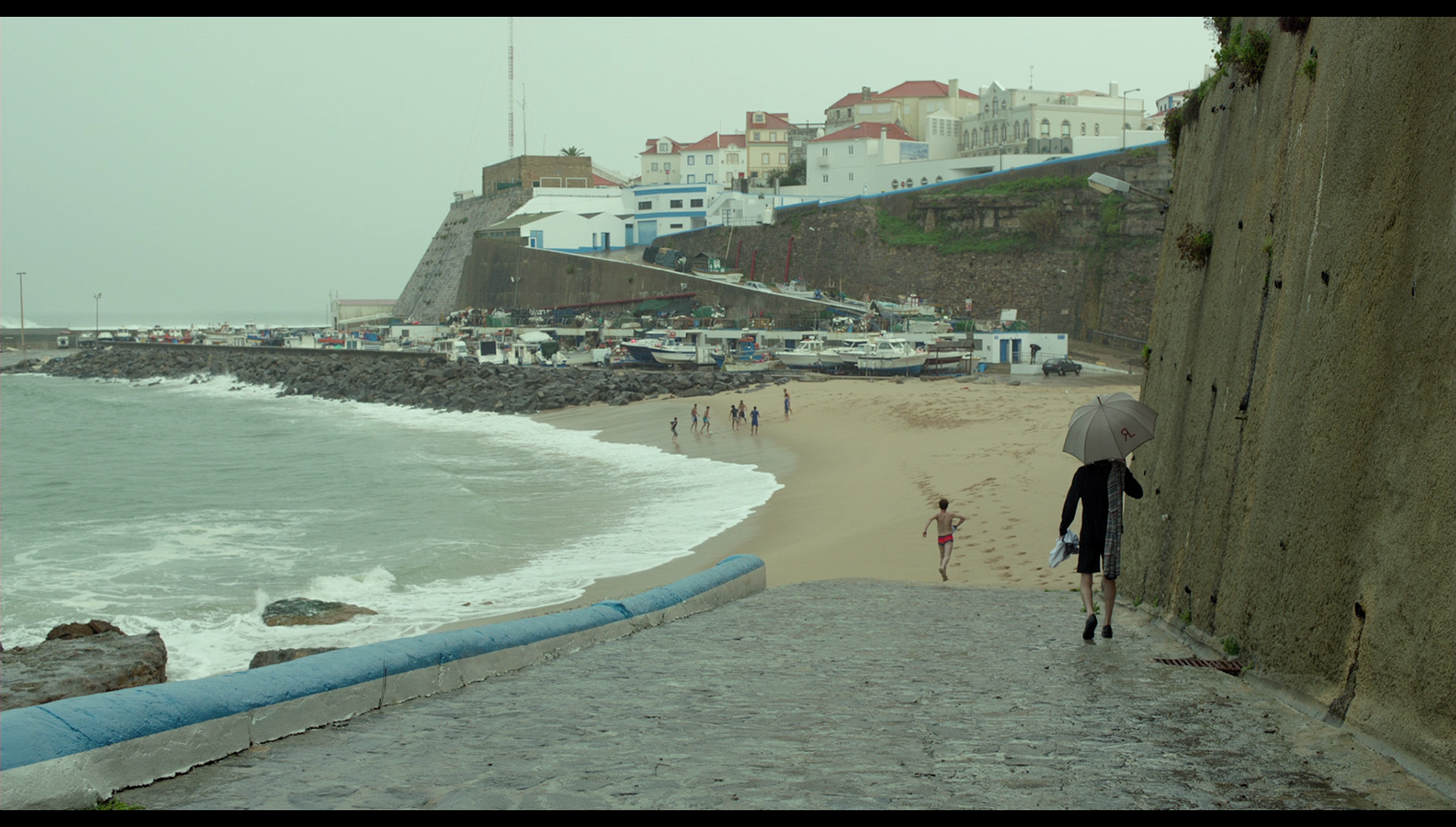
Video
Video
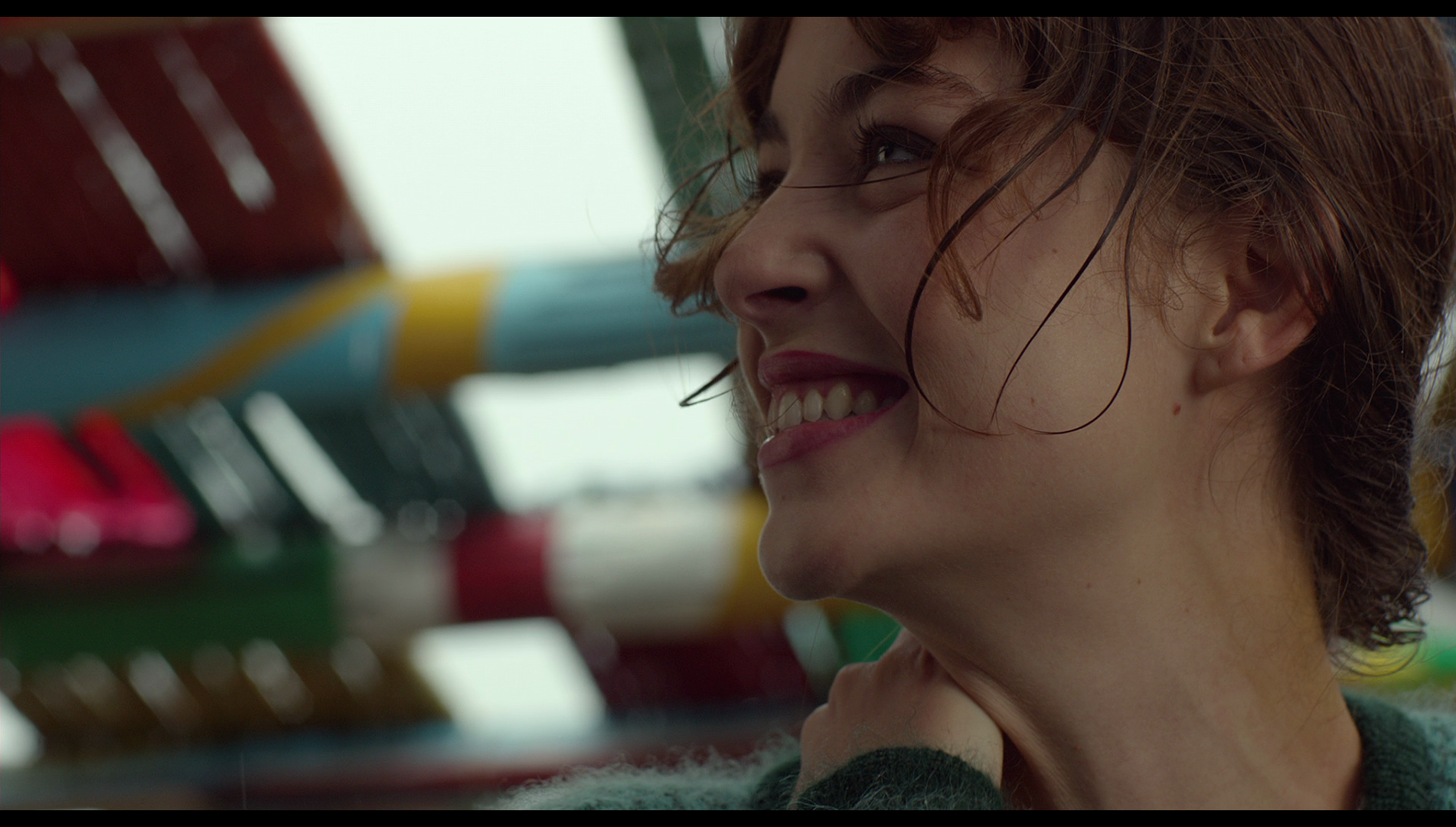 Taking up about 30Gb of space on a dual layered Blu-ray disc, Cosmos is here presented in its original aspect ratio of 1.85:1. The 1080p presentation uses the AVC codec. Shot digitally, Cosmos has a crisp, clean and modern aesthetic which is communicated very well in this HD presentation. Colours are rich and fine detail is present throughout. Towards the end of the film, there’s an interestingly photographed scene which features a combination of mist and snow, and this is handled very nicely here. Contrast levels are good, providing defined midtones and deep shadows. The encode presents no problems. The film is uncut and runs for 102:11 mins. Taking up about 30Gb of space on a dual layered Blu-ray disc, Cosmos is here presented in its original aspect ratio of 1.85:1. The 1080p presentation uses the AVC codec. Shot digitally, Cosmos has a crisp, clean and modern aesthetic which is communicated very well in this HD presentation. Colours are rich and fine detail is present throughout. Towards the end of the film, there’s an interestingly photographed scene which features a combination of mist and snow, and this is handled very nicely here. Contrast levels are good, providing defined midtones and deep shadows. The encode presents no problems. The film is uncut and runs for 102:11 mins.
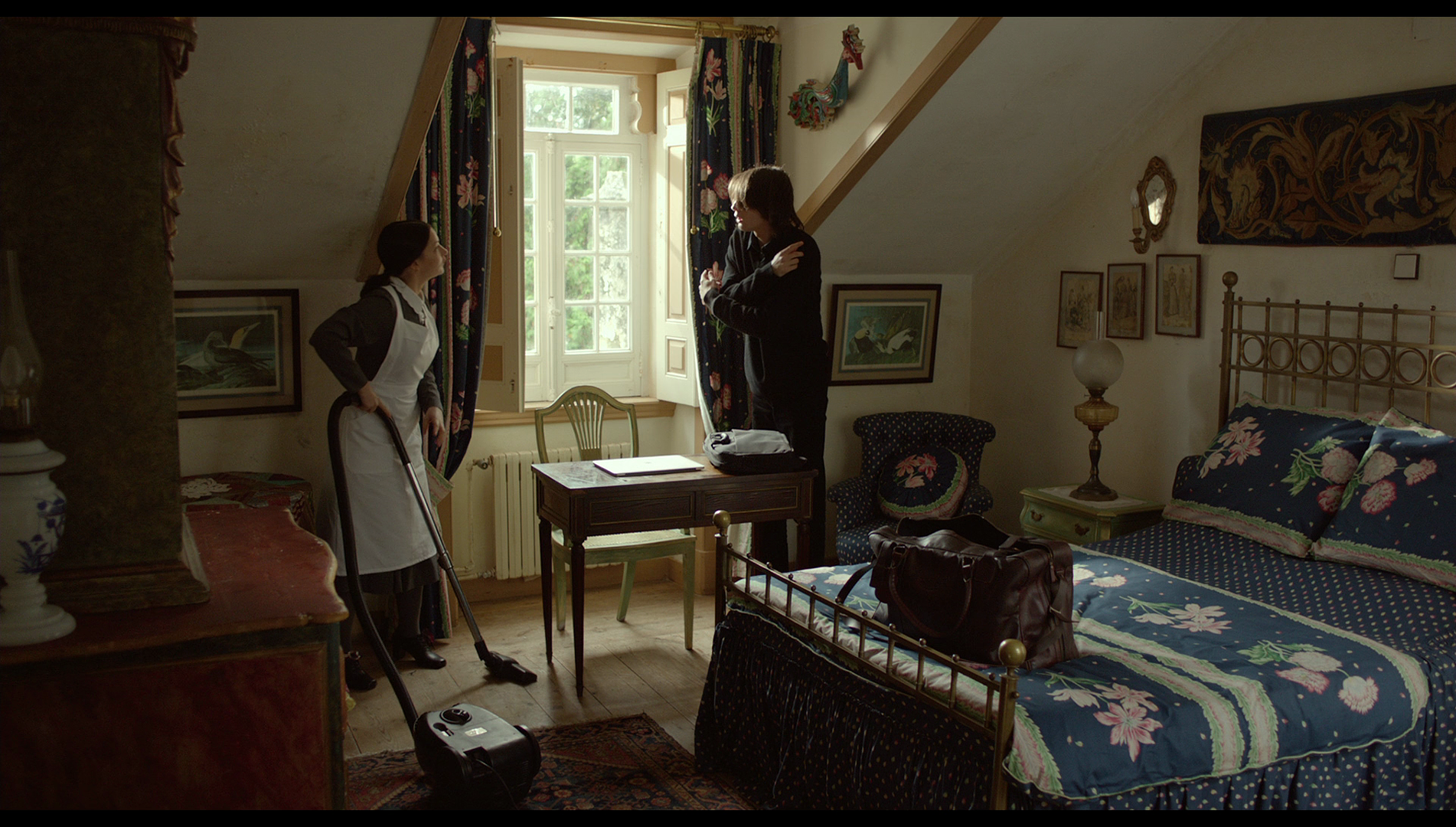 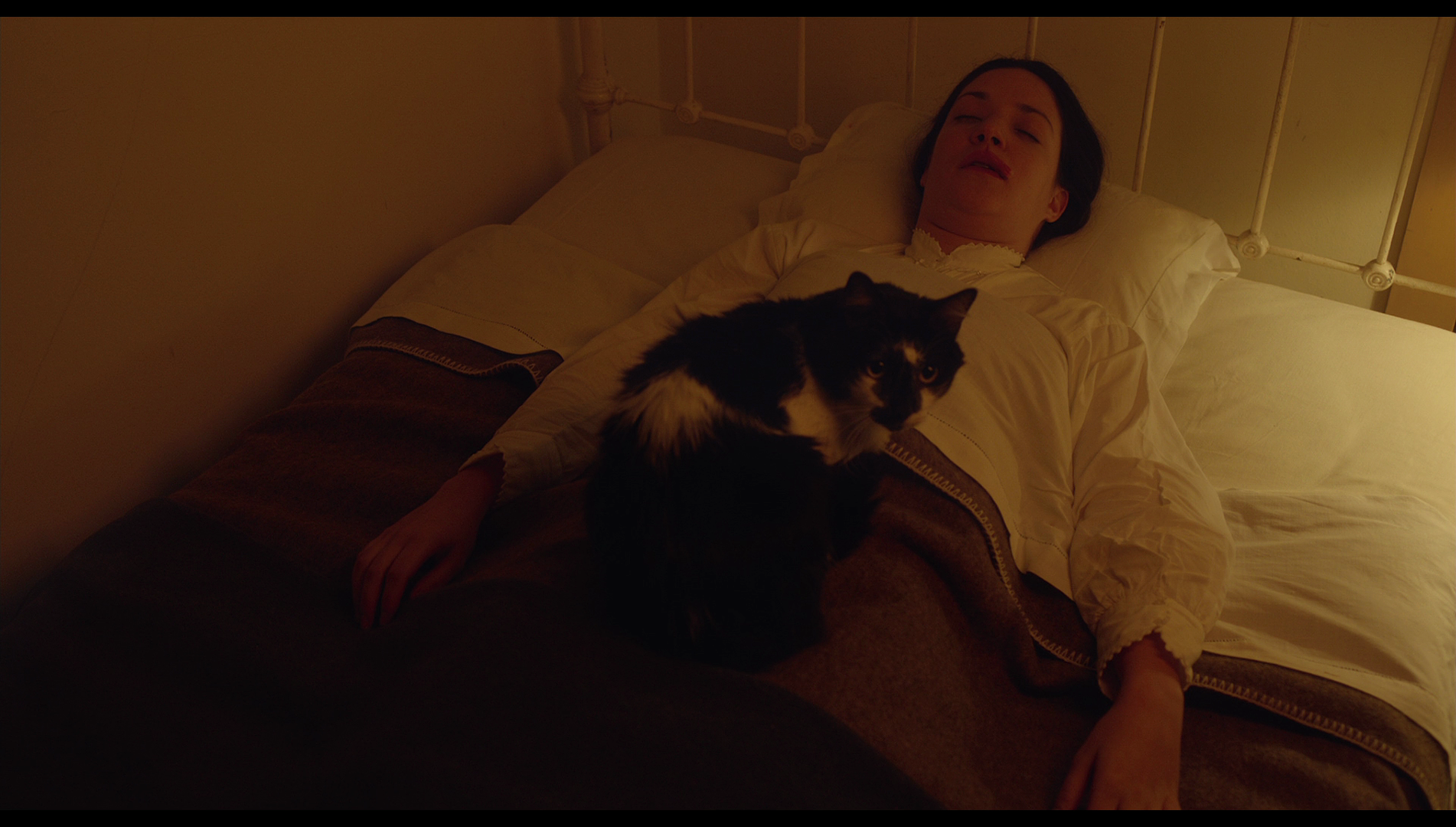 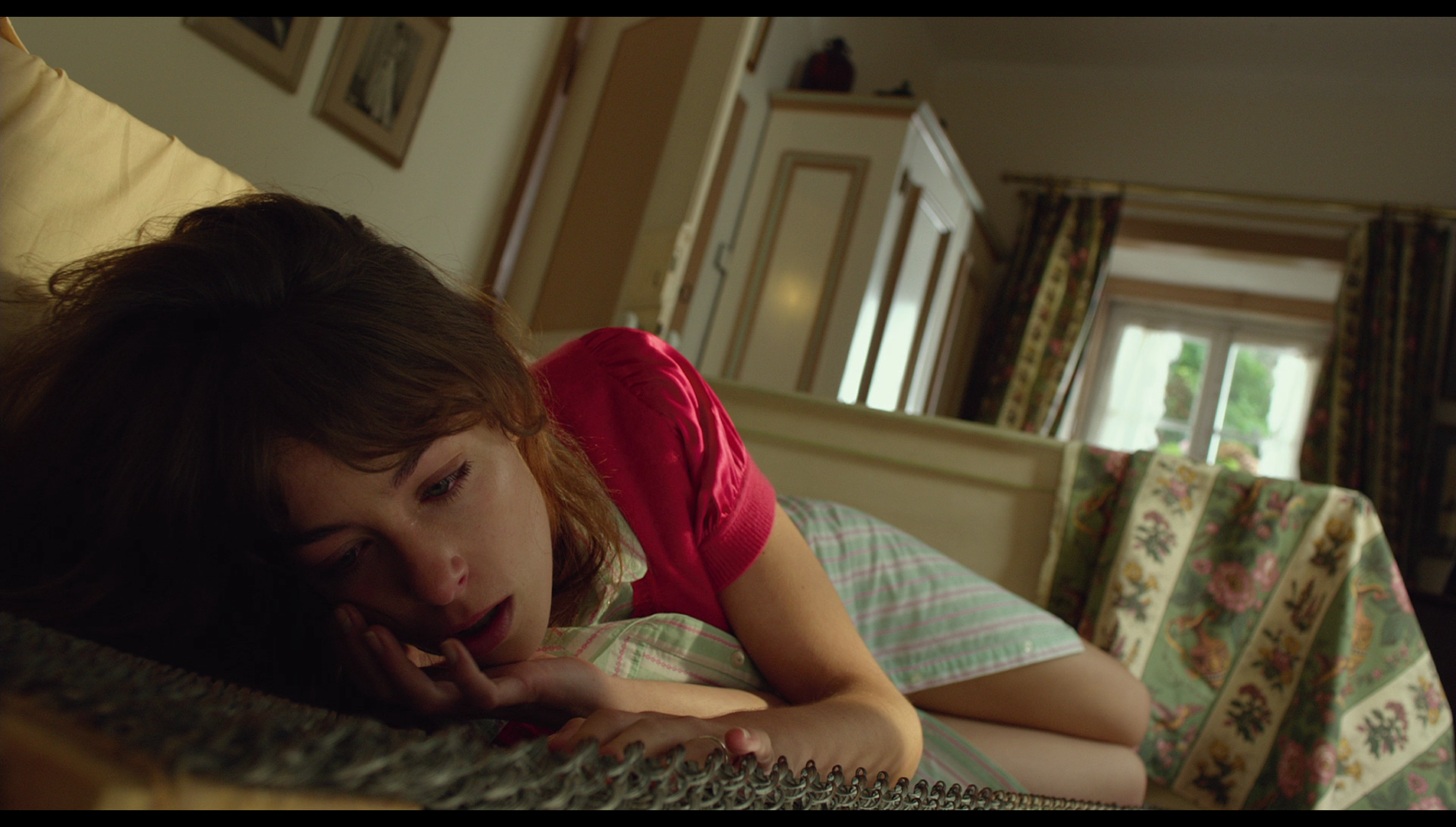
Audio
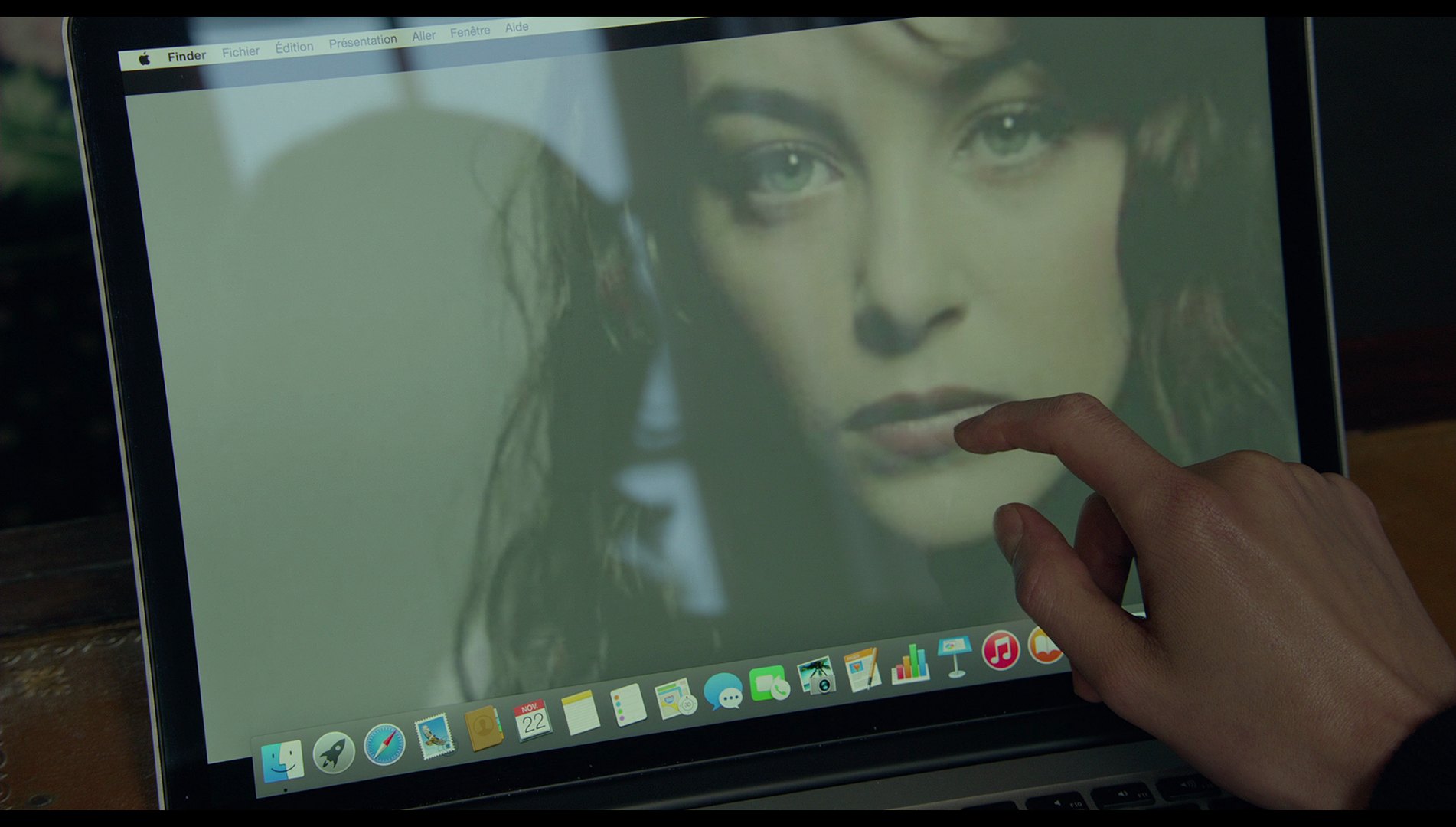 Audio is presented via a DTS-HD MA 5.1 track, in French, with optional English subtitles. The audio track is rich and clear, with very good range. It’s not a showy track, by any stretch of the imagination, but there’s some effective sound separation used in film’s opening titles music. The English subtitles are easy to read and unproblematic. However, as a film whose focus is at least in part on the nature of language, Cosmos arguably doesn’t work as well in translation, the subtitles sometimes struggling to translate the nonsense that drips from the mouths of the characters (especially Léon): ‘The events we went through are slipping through our fingers’, Witold observes at one point, ‘The weight of the here and now has become like the bleurgh’. Audio is presented via a DTS-HD MA 5.1 track, in French, with optional English subtitles. The audio track is rich and clear, with very good range. It’s not a showy track, by any stretch of the imagination, but there’s some effective sound separation used in film’s opening titles music. The English subtitles are easy to read and unproblematic. However, as a film whose focus is at least in part on the nature of language, Cosmos arguably doesn’t work as well in translation, the subtitles sometimes struggling to translate the nonsense that drips from the mouths of the characters (especially Léon): ‘The events we went through are slipping through our fingers’, Witold observes at one point, ‘The weight of the here and now has become like the bleurgh’.
Extras
The disc includes:
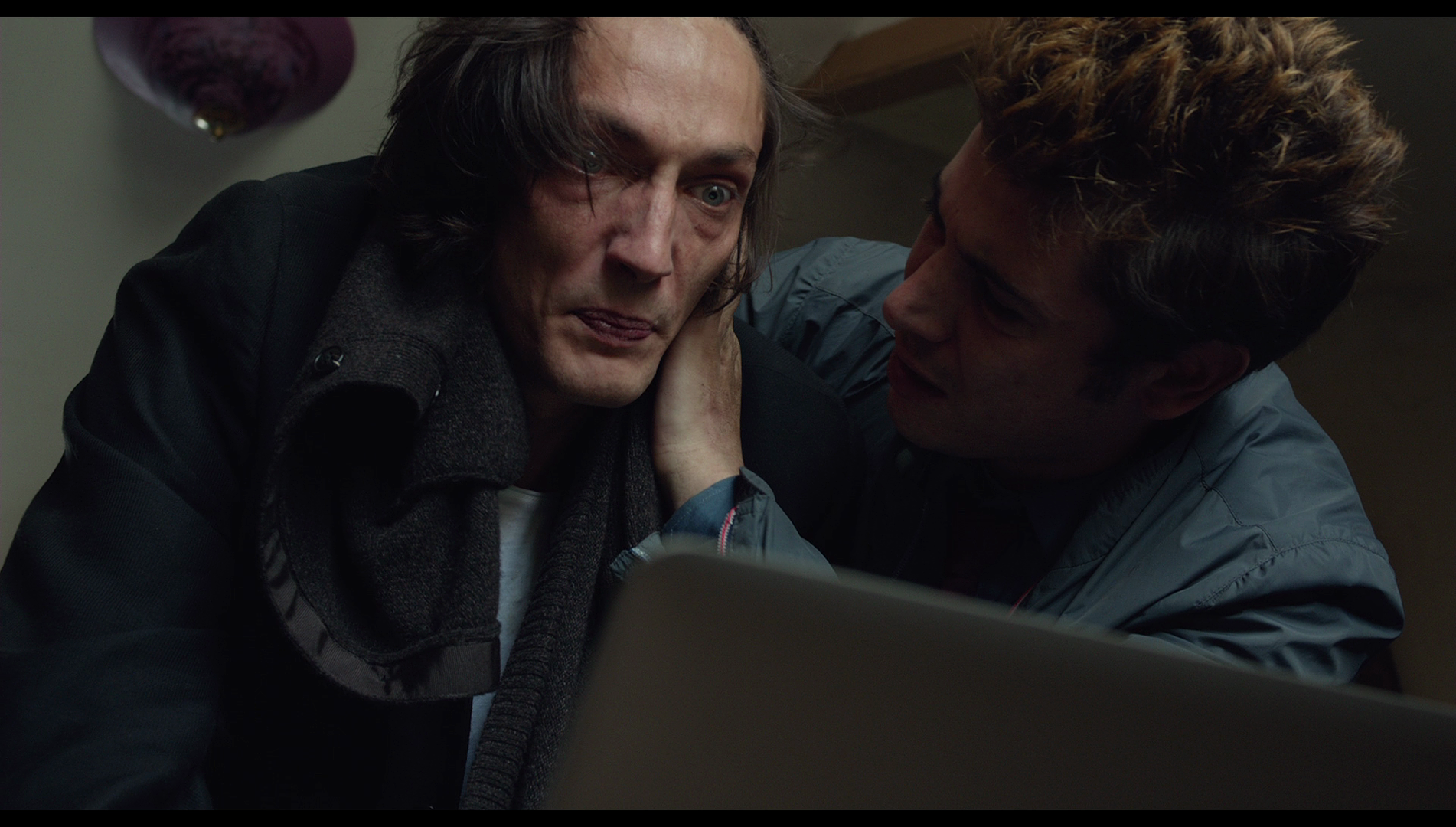 - ‘Hanging Sparrows’ (31:91). In this featurette, the principal cast (Genet, Guerra, Balmer and Pons) and cinematographer Andre Szankowski reflect on the production. Also included is some archive footage of Zulawski. They discuss Zulawski’s approach to directing actors, and reflect on the script’s use of language. The featurette is in English and French, with optional English subtitles. - ‘Hanging Sparrows’ (31:91). In this featurette, the principal cast (Genet, Guerra, Balmer and Pons) and cinematographer Andre Szankowski reflect on the production. Also included is some archive footage of Zulawski. They discuss Zulawski’s approach to directing actors, and reflect on the script’s use of language. The featurette is in English and French, with optional English subtitles.
- ‘A Brief History of Gombrowicz’ (11:25). Rita Gombrowicz is interviewed about the work of her husband, Witold Gombrowicz. She discusses their first meeting and talks about the author’s key novels before reflecting on some specific books by Gombrowicz. This interview is in French, with optional English subtitles.
- ‘Bleurgh’ (4:48). In this short video essay by Daniel Bird, we are presented with a montage of some of the film’s dense web of allusions to film, literature and theatre.
- Behind the Scenes (7:42). This series of clips from the shooting of the film shows the setting up of some of the shots and the application of makeup to Catherette’s lip. We also see Zulawski directing is actors and the crew doing their work.
- Locarno Film Festival: Press Conference (30:51); Q&A (44:12); and Awards Ceremony (2:41). In this footage from the 2015 Locarno Film Festival, we are presented with Zulawski and some of the cast commenting on the film and fielding questions from the audience. This, again, is in French with optional English subtitles.
- Lisbon & Estoril Festival Introduction (7:36). Here, Zulawski gives an introduction to the film in front of the festival’s audience. Optional English subtitles are included.
- International Trailer (1:39).
- UK Trailer (1:39).
Overall
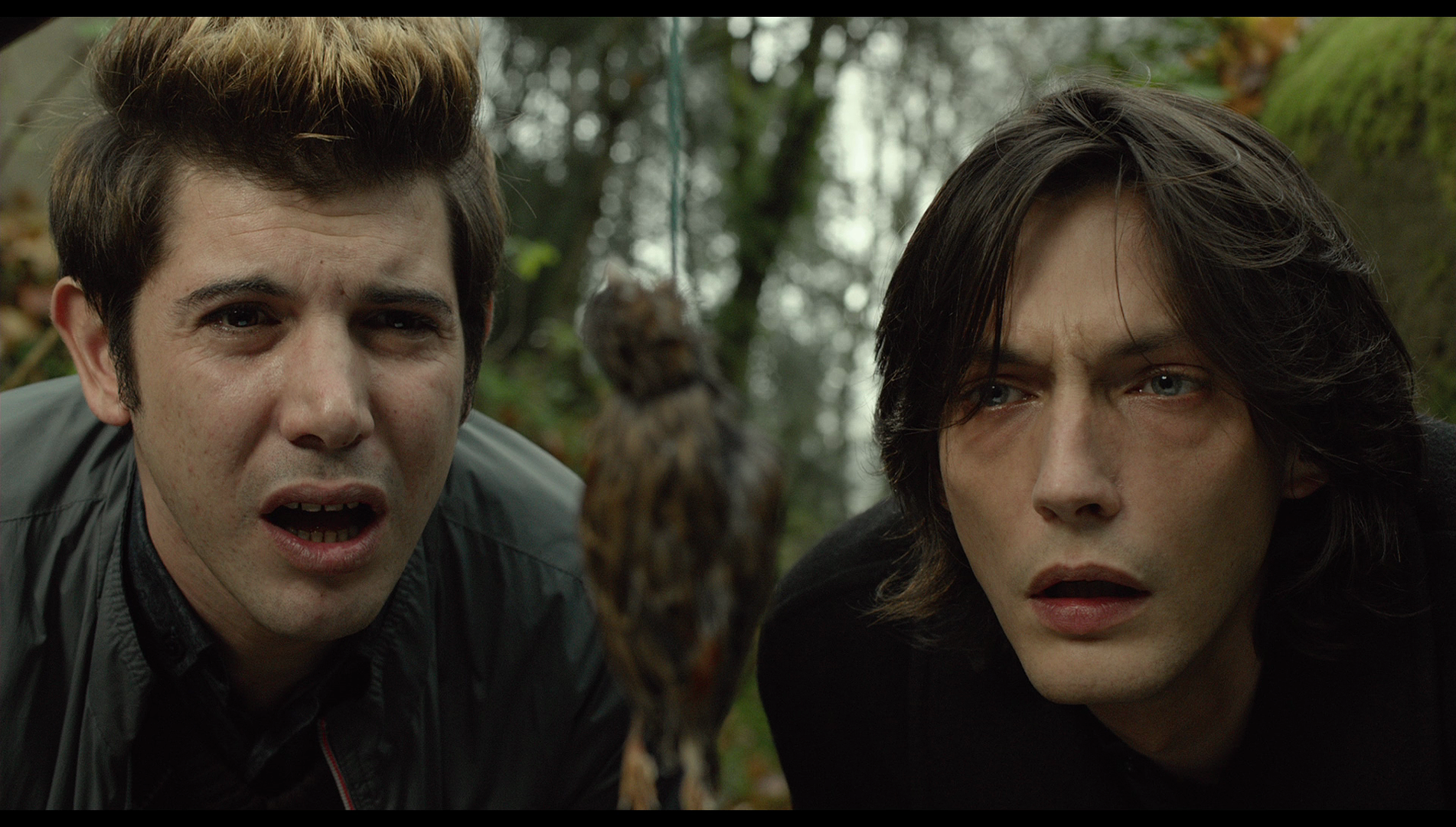 Cosmos is an interesting film, though one that perhaps loses something in translation: the word play and jitterish gibberish spouted by the characters arguably isn’t communicated very well via subtitles. Like the novel on which it’s based, the film draws parallels between the protagonist’s search for meaning in his environment, represented through Witold’s obsession with symbols of impending doom, and the art of narrative. Zulawski’s adaptation of the novel is excellent in switching paradigms to make this theme relevant for cinema by emphasising the visual nature of the signs on which Witold focuses – whereas Gombrowicz’s source novel is naturally, given the medium, more focused on language and wordplay. Cosmos is Marmite viewing: viewers looking for a more conventional story will find this film immensely frustrating, but those on its wavelength will find the picture beguiling. Cosmos is an interesting film, though one that perhaps loses something in translation: the word play and jitterish gibberish spouted by the characters arguably isn’t communicated very well via subtitles. Like the novel on which it’s based, the film draws parallels between the protagonist’s search for meaning in his environment, represented through Witold’s obsession with symbols of impending doom, and the art of narrative. Zulawski’s adaptation of the novel is excellent in switching paradigms to make this theme relevant for cinema by emphasising the visual nature of the signs on which Witold focuses – whereas Gombrowicz’s source novel is naturally, given the medium, more focused on language and wordplay. Cosmos is Marmite viewing: viewers looking for a more conventional story will find this film immensely frustrating, but those on its wavelength will find the picture beguiling.
Arrow’s presentation of the film is superb and is accompanied by some excellent contextual material.
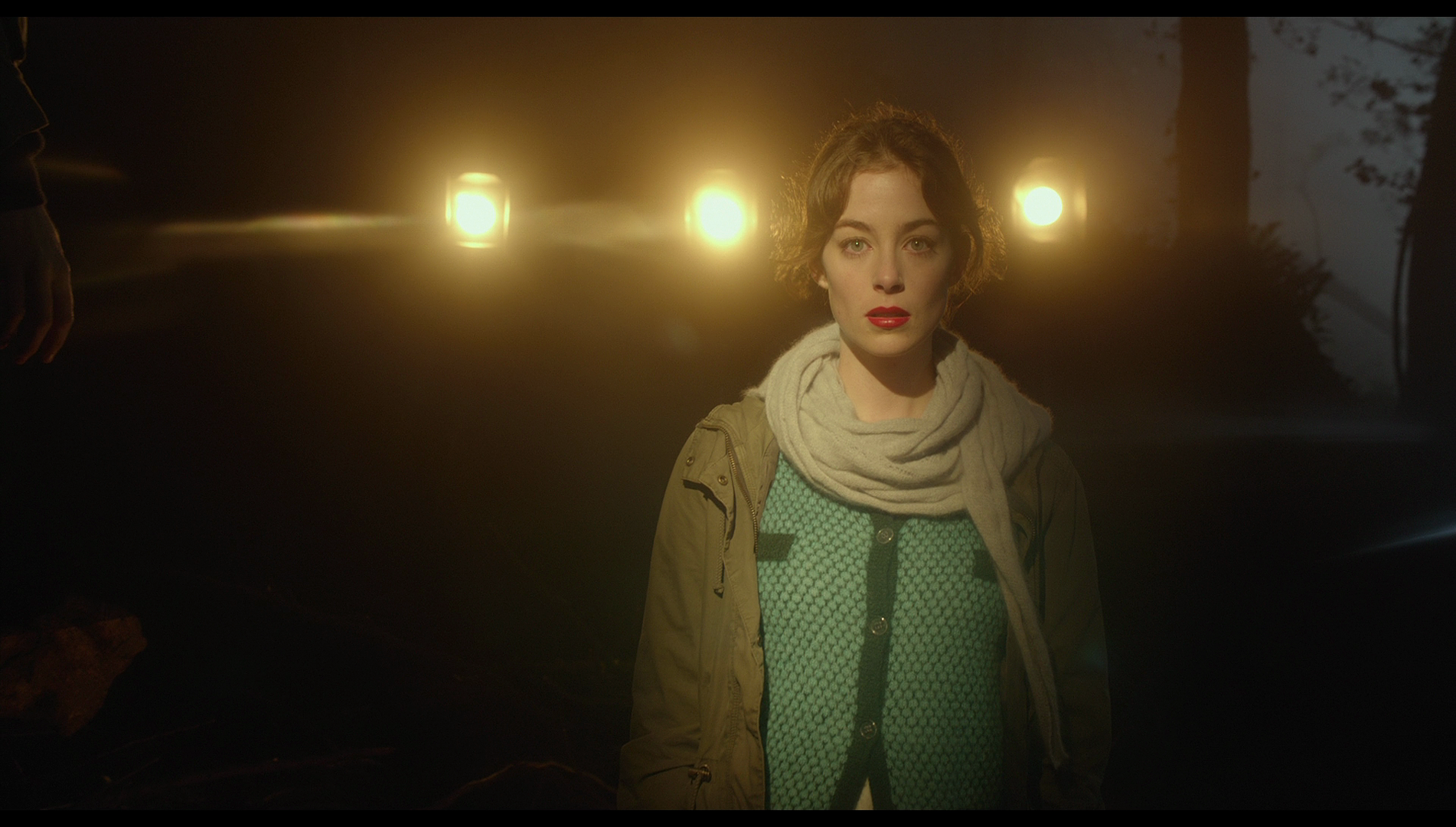
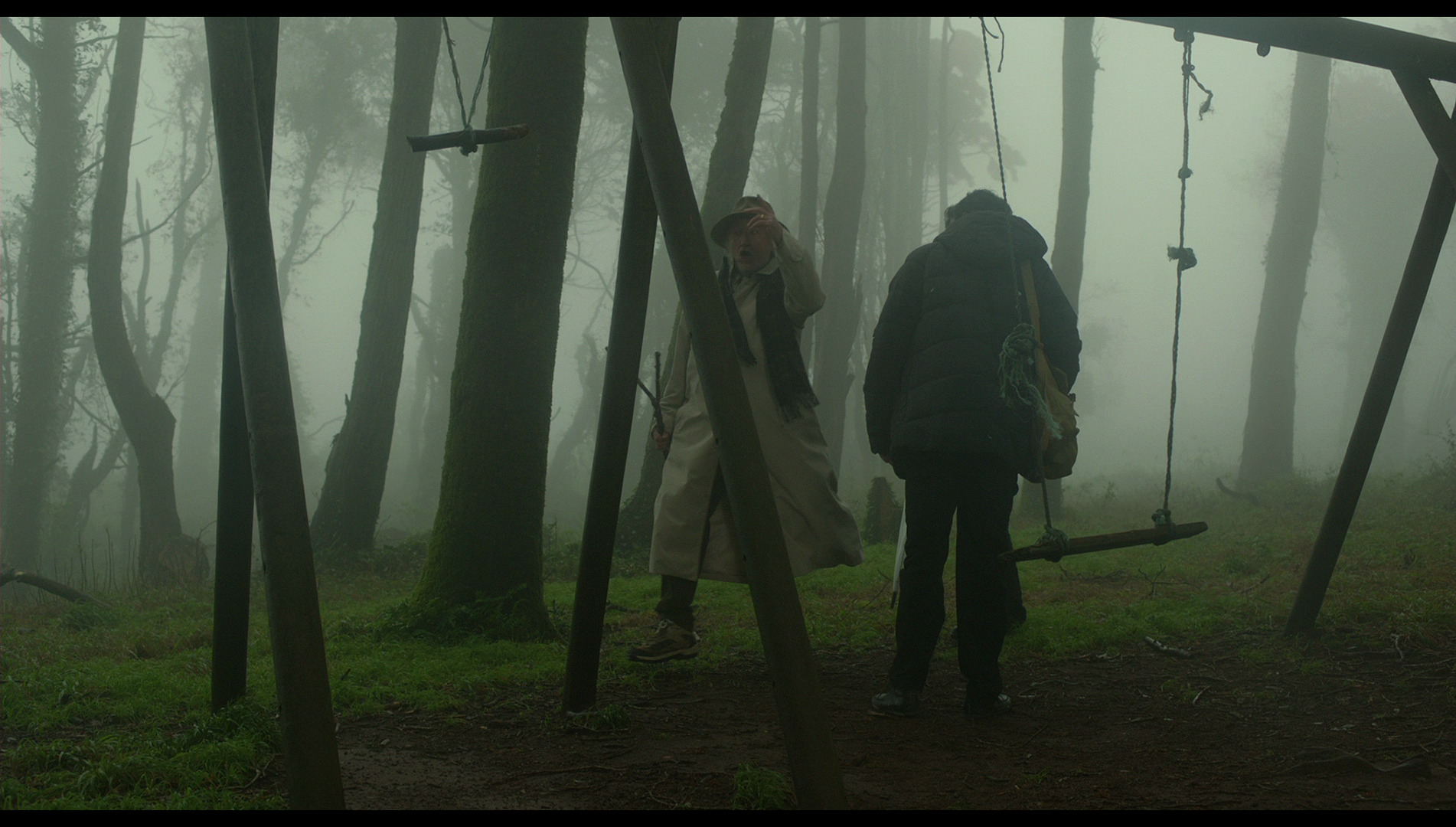
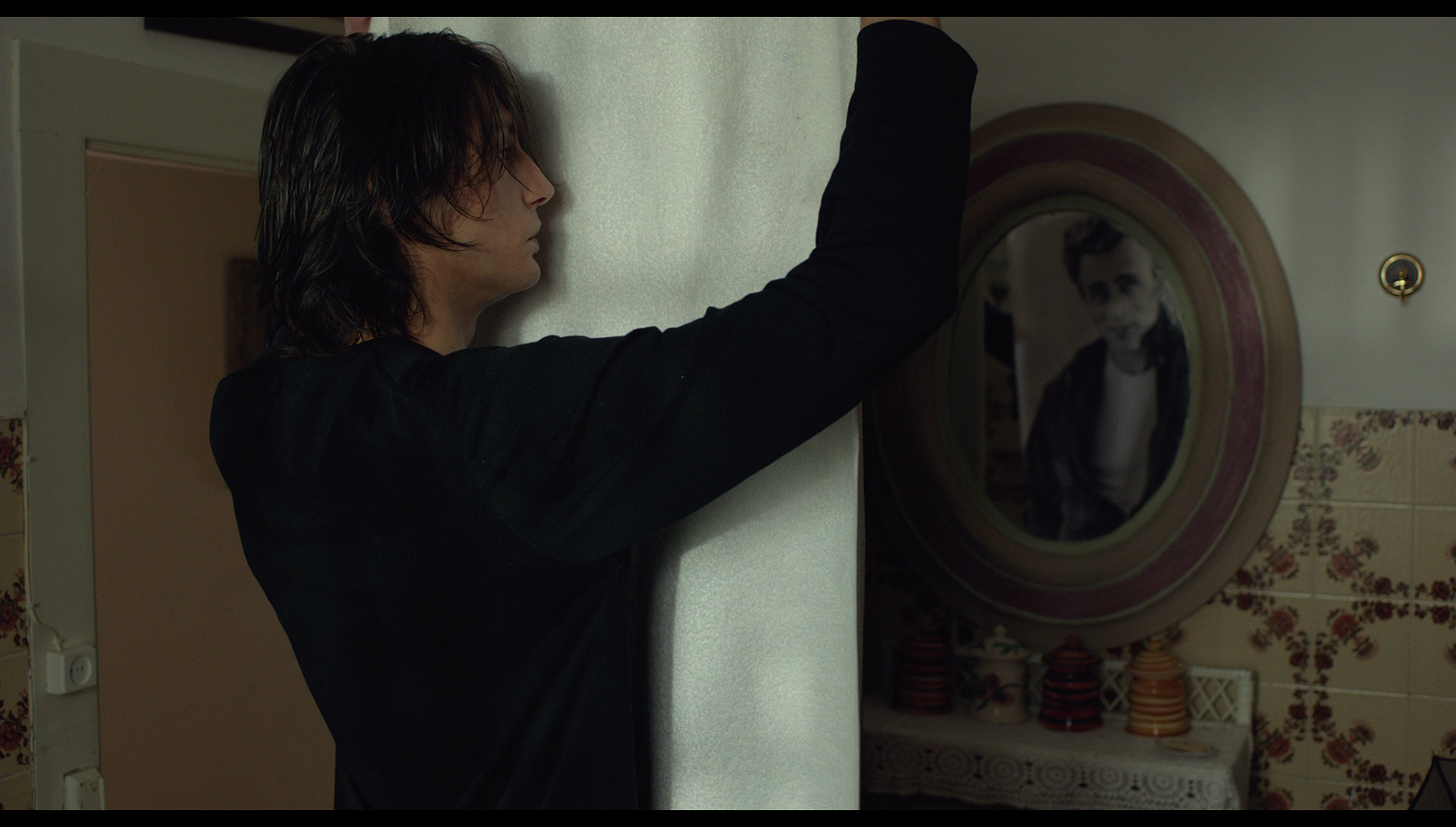
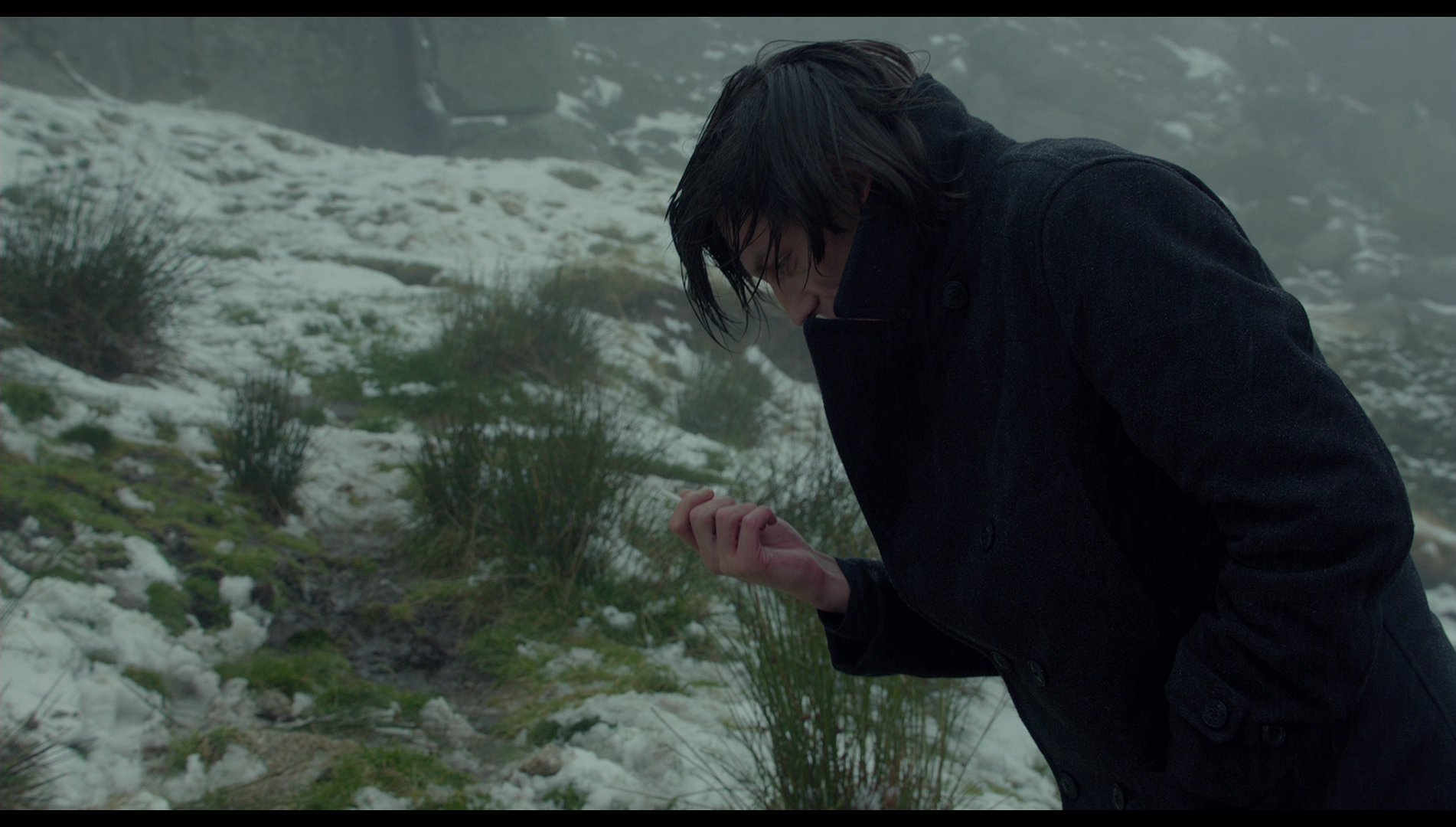
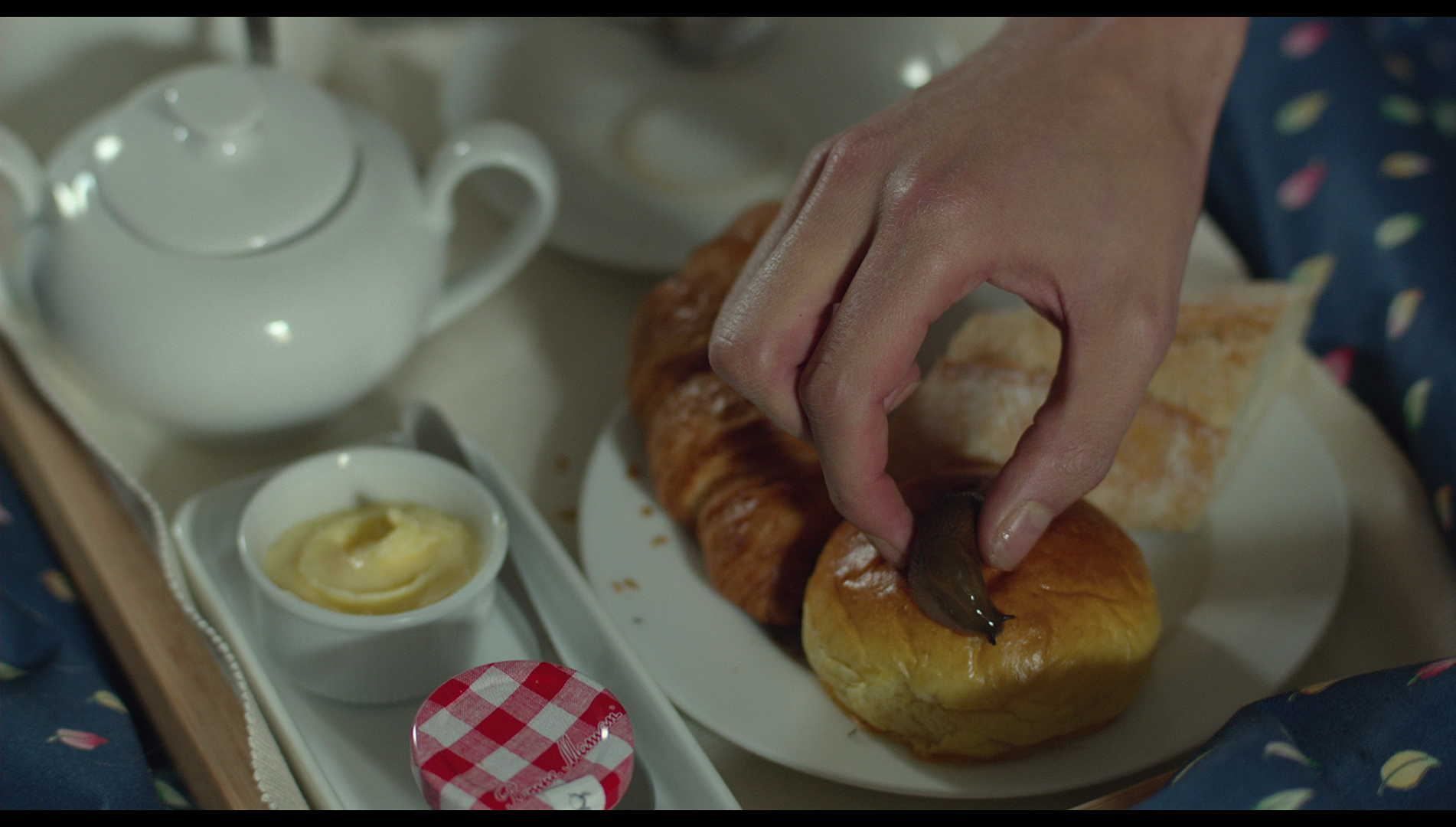
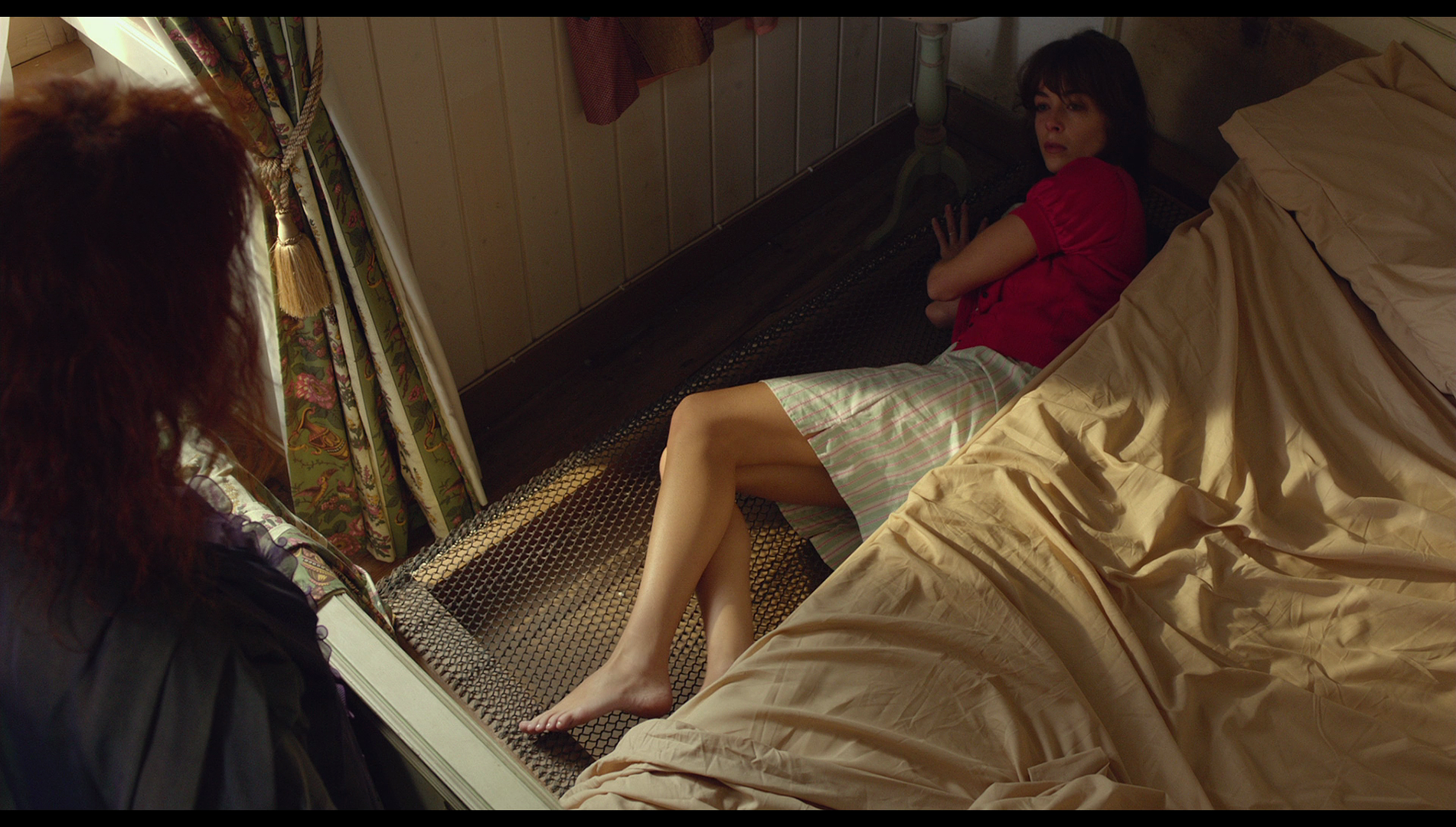
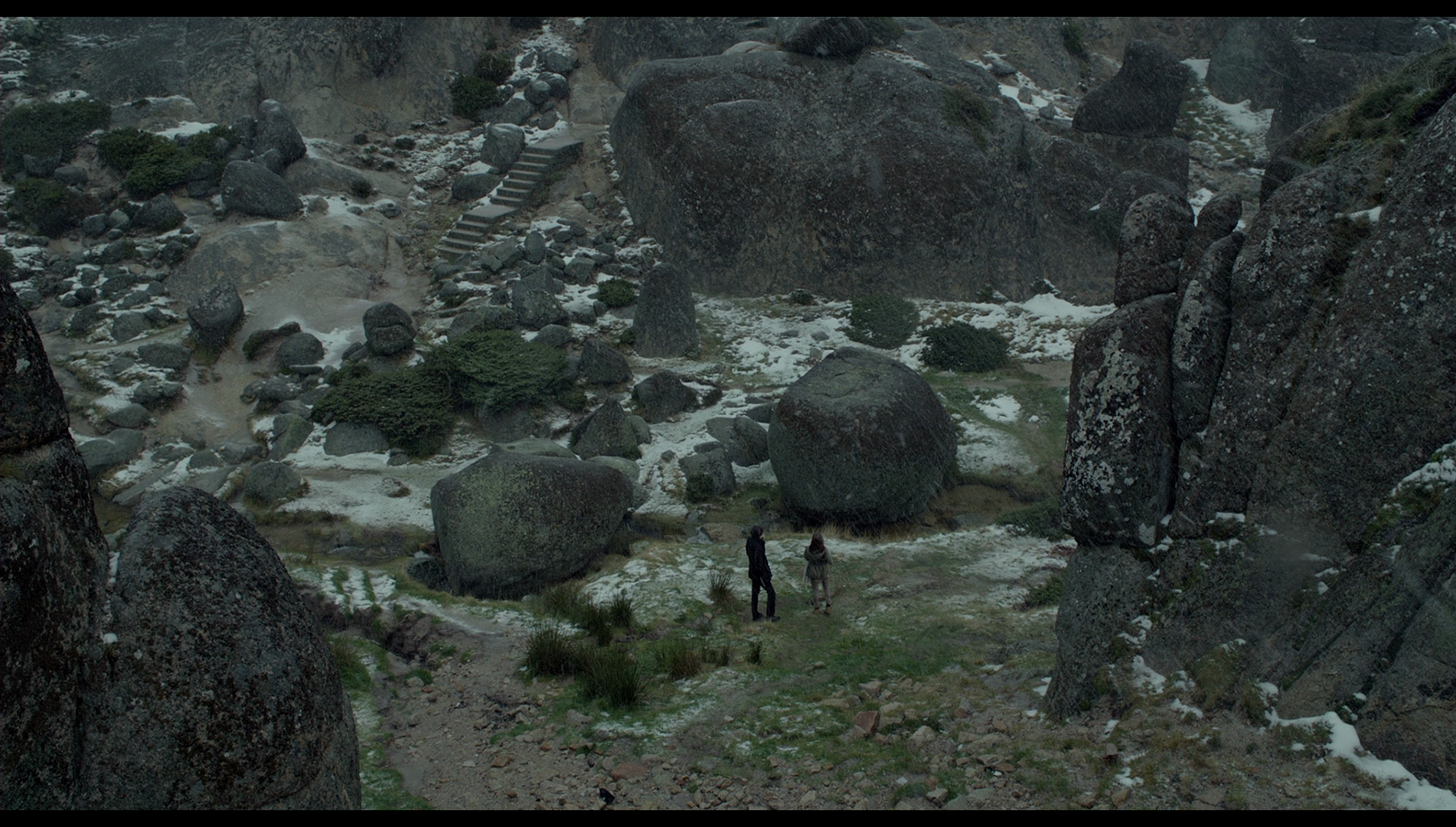
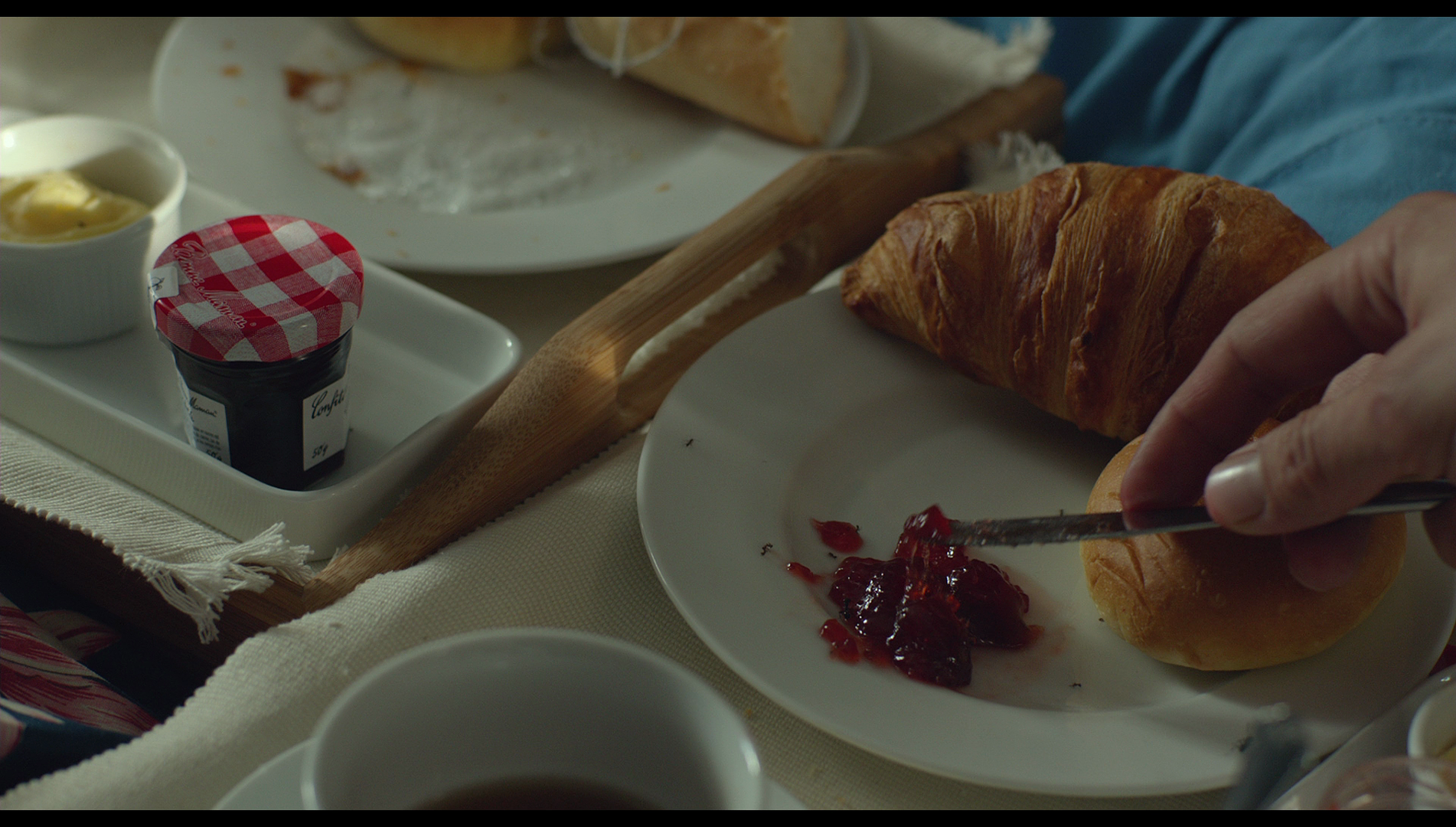
|


